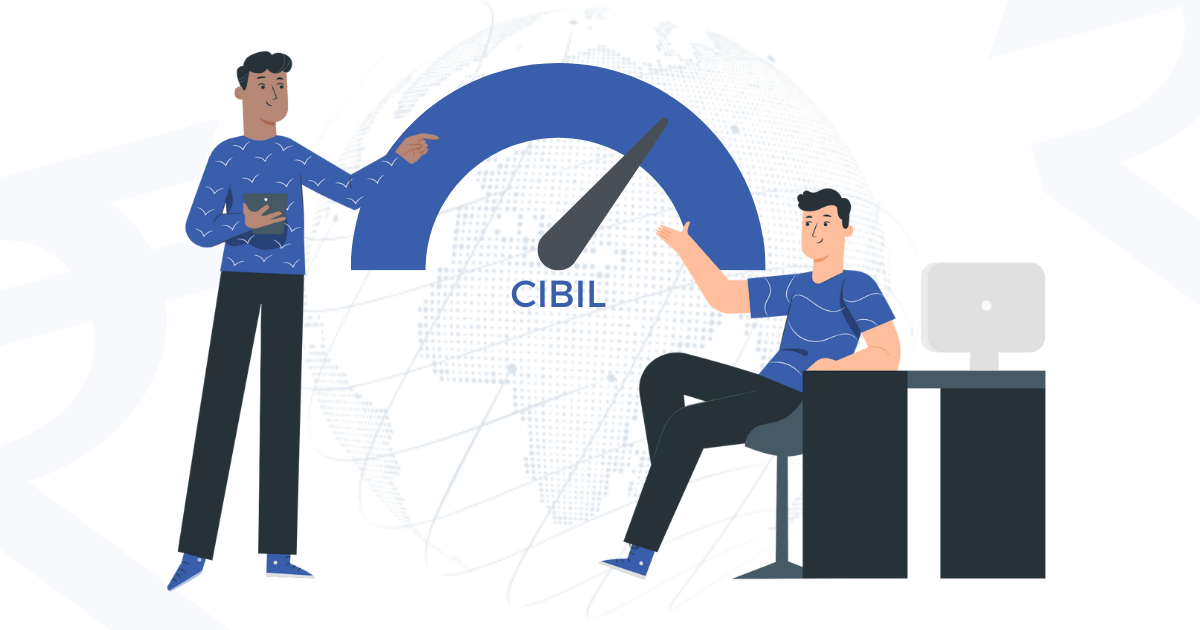CIBIL score for Business loan
CIBIL (Credit Information Bureau India Limited) or credit score reflects your creditworthiness. It has a basis on your borrowing and repayment history, as shared by lenders. Cibil’s score ranges between 300 and 900. A score above 700 is generally considered good. Different lenders have different requirements concerning CIBIL scores. It is like the first impression of the borrower for the lending institution.
If a person manages his finances responsibly, then his CIBIL score for loan approval will always be higher. Whereas, the borrower who has a low CIBIL score will have lower creditworthiness towards the repayment of loans. Several factors are taken into consideration while calculating the credit score. It is like the relationship of the applicant with the bank, repayment history, outstanding debt, etc.
Factors affecting credit score
Here, we will discuss a few of them:
1. Repayment History of the borrower:
Applicants’ repayment history influences most in credit score. It is a crucial aspect that is taken into consideration while undertaking calculations. The past performance of repayment of funds, whether the applicant has paid the loan in time or not is checked.
The bank as well as the Credit bureau keeps track of month-to-month records of the EMIs of the applicant and studies their relationship with the banker. The timely repayments will give a positive score, but the inconsistency in payments will negatively impact the score. The repayment history contributes approximately 30-35% weightage to the overall score.
2. Credit Balance of applicant:
The other factor is the credit balance in the account of the applicant while making repayment of loans. The score will be affected when the applicant does not have a favourable credit balance while making the payment through EMIs. Hence, one should maintain a credit balance in their account.
3. Outstanding Debt:
Having an outstanding debt hampers largely on CIBIL. One must not have any outstanding debt while applying for the new loan, this affects your CIBIL intensely and negatively. The borrower loses the credit from the bank as well as from the credit bureau, and it becomes difficult to gain confidence again.
4. Duration in Credit Line:
This impacts the medium on the score. Generally, banks, NBFCs, or Financial Institutions give priority to their old or regular customers. i.e. Their genuine customers and tend to help them throughout. This shows that you have used the given credit responsibly and have repaid dues on time.
5. Irresponsible Payment Behaviour:
Many times banks remind their customers about the outstanding dues and still, they behave ignorantly in paying them on time. This will affect the score negatively and cause huge problems while sanctioning future loans.
6. Type of credit used:
Any bank, NBFC, or Financial Institution can give any one of the secured or unsecured business loans. This type of credit too matters a lot in calculating credit scores and impacts up to 20% on the score.
CIBIL score for loan approval
A credit score is required in the process of a business loan. The higher the amount of the loan, the higher the credit score. The minimum CIBIL for corporate financing is usually between 700 and 750. Having this score means you are creditworthy and lenders will approve your loan application quickly. Below is the list of the places where CIBIL matters:
- In loan approval, mostly unsecured loans require a high score due to the absence of collateral security.
- While applying for credit cards, the score is checked for understanding whether or not the applicant has the capacity for repayment in a specified time.
- When a company wants to raise finance to a higher amount, the credit score is given the top priority.
Advantages of a Good Credit Score
A high Credit Score leads to several advantages for a borrower. Here are a few key advantages:
1. Credit from Lenders
If an applicant has a good CIBIL score, he may get a loan from a financial institution with a lower interest rate and minimum documentation. However, if the CIBIL score of a candidate is low, the financial institution may reject his application for a loan or offer it at higher rates of interest.
2. Quick Approval
A high CIBIL score states that you have good creditworthiness. Also will repay your loan on time to the lender. Therefore, the financial institution will process your loan faster. The ones who have a low CIBIL Score may have to submit several documents and find guarantors making the loan disbursal process time-consuming.
3. Low-interest rate
Those who have a higher CIBIL, get a loan at a lower interest rate than the ones who have a lower one. This is because when one has a higher CIBIL score, the banks trust the borrower more than the ones who have a low one.
4. More Negotiation
For people who have a higher score, financial institutions will grant loans to them quickly and at a low interest rate. Therefore, they get more negotiation authority to negotiate with the banks for a lower interest rate.
5. Higher Limit Loans
With a good CIBIL, you may get loans to the upper limit. Therefore, you should do your CIBIL report check.
6. Easy Approval for Leased Properties
A good credit score assists us in getting easy approval for loans even for rented or leased properties. Like commercial complexes, apartments, and so on.
7. Amazing Credit Card Offers
If you have a good score, you may also enjoy credit card offers from various banks. These cards generally have higher limits, more privileges, and amazing offers and cash-backs.
Learn how the Factors Affect the CIBIL Score and Their Impact on Loan Eligibility here.
How can you improve a credit score?
Following are the ways of growing CIBIL score for Loan Approval:
- Always try to pay dues on time i.e. may that be credit card dues or any other. Late payment negatively affects scores and becomes tedious to develop again.
- Maintain appropriate credit balance in a bank account. Having a low or negative balance affects the score adversely.
- Periodically, the business should keep track of a credit report and examine what is to be done to keep a positive score throughout.
To conclude
A credit score is similar to a report card. It grades your financial fitness based on how you have used credit in the past. Just like a report card, your credit score can be used to give lenders an idea of whether or not you are a good candidate for an unsecured business loan. A good credit score is something that every borrower dreams of. It helps you get a good loan amount from a bank at a lower interest rate. Thus, the higher the score, the faster the approval. Whereas, a low credit score makes it difficult to get loans.
Check your CIBIL for Free here.









